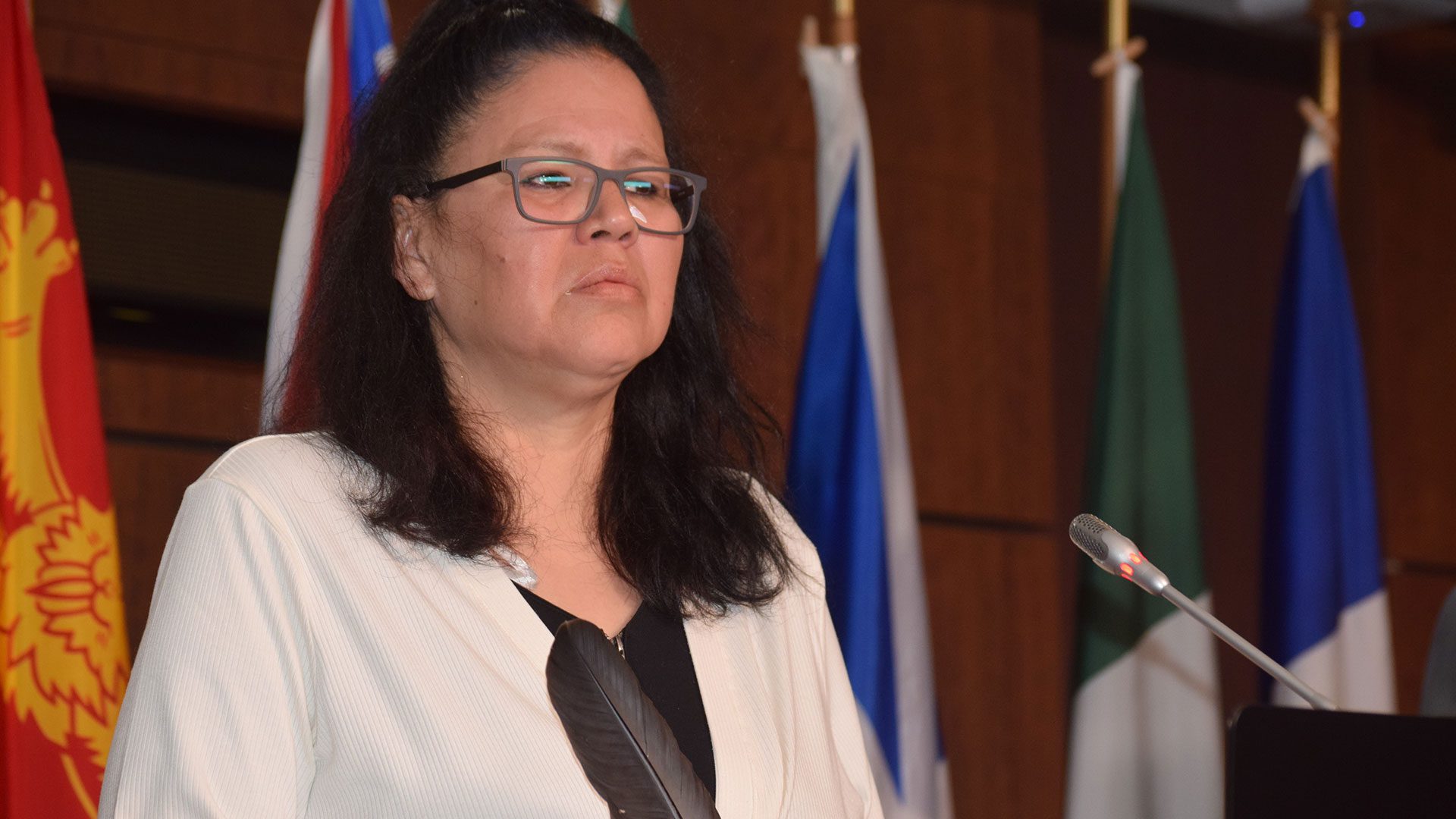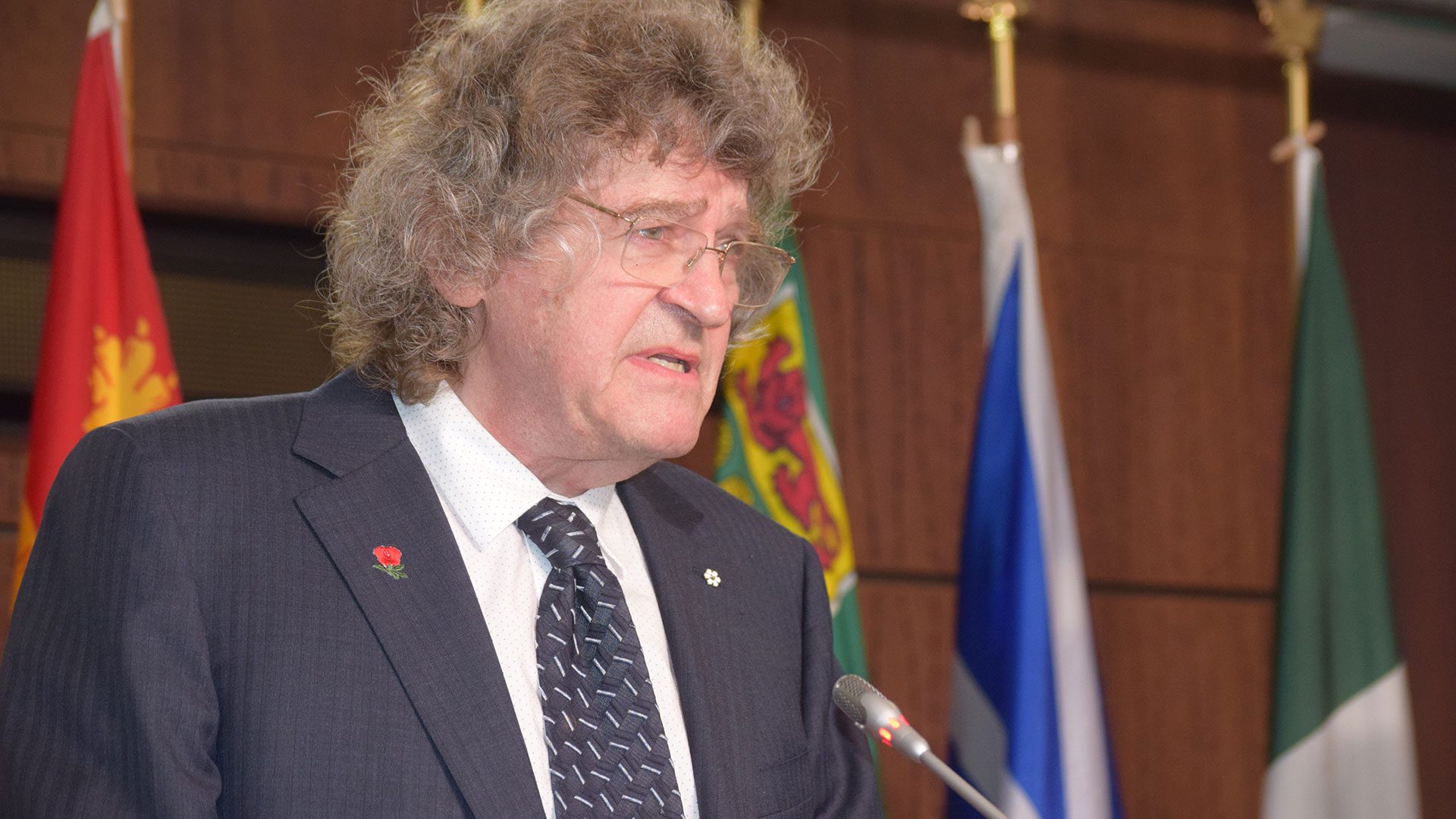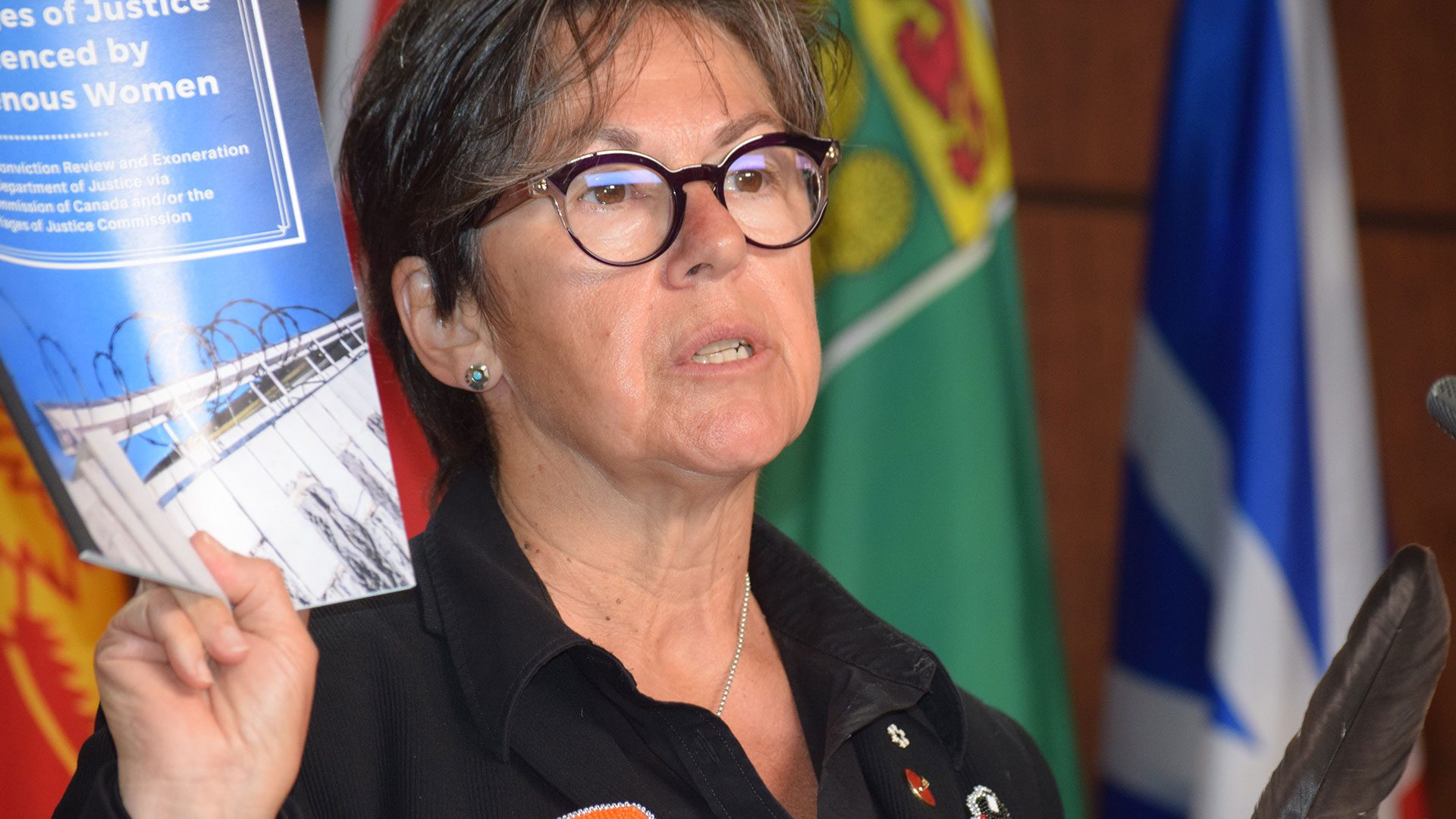Canada’s Justice Minister David Lametti says there may have been a miscarriage of justice in the case of Odelia and Nerissa Quewezance, two sisters from Keeseekoose First Nation in Saskatchewan, who have been in prison for nearly three decades.
“On behalf of the Minister of Justice, I am writing to advise you that it has been determined there may be a reasonable basis to conclude that a miscarriage of justice likely occurred in this matter,” wrote a Department of Justice lawyer to James Lockyer, a Toronto-based lawyer with Innocence Canada, who is representing the sisters.
“In accordance with sections 4(1)(a) and (2) of the Regulations Respecting Applications for Ministerial Review – Miscarriages of Justice, this matter will now proceed to the investigation stage of the conviction review process.”
The news came only hours after Odelia spoke at a news conference in Ottawa where she asked Lametti to free her and her sister. And less than a day after she was introduced in the Senate.
“I don’t know how to feel, I’m just in shock,” said Odelia after hearing the news. “I’m in disbelief.”

Earlier, Odelia was at a news conference on Parliament Hill with supporters gathered around her.
“We’ve been wrongfully accused,” she told reporters. “I’m asking for justice today.”
The Indigenous women are two of Canada’s longest-serving inmates. They were convicted in 1994 of the second-degree murder of Kamsack, Sask.-area farmer Anthony [Joe] Dolff in 1993.
It was their cousin Jason Keshane, a youth at the time, who confessed to the murder. But the sisters, who are Saulteaux, remain behind bars serving a life sentence.
In 2020, high-profile advocates like exoneree David Milgaard, Kim Beaudin of the Congress of Aboriginal Peoples and Sen. Kim Pate began lobbying for their release, after Odelia’s partner contacted Milgaard.
Free Milgaard
Lockyer joined the case for no charge. He sent an application to Lametti for a ministerial review of the life sentences in December 2021.
Now that the review is moving to the next stage, Lockyer said he will apply for bail for his clients in Saskatchewan. Odelia is on day parole and Nerissa, 48, recently saw her parole revoked and is back in an institution in British Columbia.
Odelia, who was wearing a traditional First Nations ribbon skirt and clutching an eagle feather, spoke for both of them at Thursday’s news conference.
“Thirty years is a long time,” she said. “That’s cruel and unusual punishment.
“I’m asking to be free because I know in my heart I did not kill Mr. Dolff. I’m sorry that happened.”

Odelia, 50, flew to Ottawa from her Winnipeg where she is living in a federal half-way house. She hasn’t seen Nerissa in person for 18 years.
When asked how long his clients would have to wait for action, Lockyer said Saskatchewan Justice was moving as fast as “a snail with arthritis.” He said Lametti’s team still hadn’t received the court documents it needed.
Lockyer had asked Saskatchewan to join him in seeking to have the womens’ convictions set aside or downgraded, but didn’t receive a reply until recently.
“Four months later, the assistant deputy minister of Saskatchewan [Justice] writes and says in one sentence, ‘The Crown does not see a basis to reconsider the verdicts of the sisters’,” he said.
“So Saskatchewan Justice continues to fail the two sisters.”
Read More:
Back to Keeseekoose: Odelia Quewezance goes home
But Saskatchewan Justice said its Public Prosecutions branch was “cooperating with that review” and “in the course of providing disclosure to the reviewing authorities.”
Spokesperson Ariane Whiting said prosecutions “did not find a basis to reconsider the verdicts outside the federal review process.”
And the women were convicted at a trial, she added in an email to APTN News.
“The convictions were upheld by the Court of Appeal. The Supreme Court of Canada decided not to hear the case,” Whiting wrote.
Without support from Saskatchewan, Lockyer said it was up to Lametti to quash the convictions or order a new trial by finding evidence the women had been wrongly convicted.
New reports
Meanwhile, newly released reports from Sen. Kim Pate and federal Auditor General Karen Hogan add to the growing pile of evidence that shows Canada’s justice system jails a disproportionate number of Indigenous Peoples.
Pate left her post as long-term executive director of the Elizabeth Fry Society when she became a senator. She continues to advocate for female inmates in her new role, and was the one who introduced Odelia in the Senate.
“I have the privilege of knowing Nerissa and Odelia since they entered the prison system 30 years ago,” she told the news conference while holding the eagle feather Odelia gifted her.

Pate asked for immediate clemency for Odelia, Nerissa and nine other women named in her recent report Injustices and Miscarriages of Justice Experienced by 12 Indigenous Women. One of the 12 has since died, she added.
“This week, we wrote to the minister of public safety asking that he consider employing the Royal Prerogative of Mercy to free these 12 women,” Pate said.
“We need to see action now. We cannot wait for more good platitudes, more good intentions – we need to see action.”
Lockyer agreed, suggesting that “white” women would have never suffered the same fate as the Quewezance sisters.
“Odelia and Nerissa are just examples of how our system treats the Indigenous, especially Indigenous women,” he said. “And their fate now is in Minister Lametti’s hands.”
Milgaard, who died suddenly of a brief illness in May at the age of 69, was remembered at the news conference for his dogged support of the wrongfully convicted.
“Today, I want to acknowledge him,” said Odelia. “Because he’s the one that helped me at the beginning and now he’s gone. But I know he’s still here in spirit.
“David Milgaard could relate.”
Editor’s note: This story was updated at 8 pm CT on 02/06/22 to add the comment from Saskatchewan Justice.









